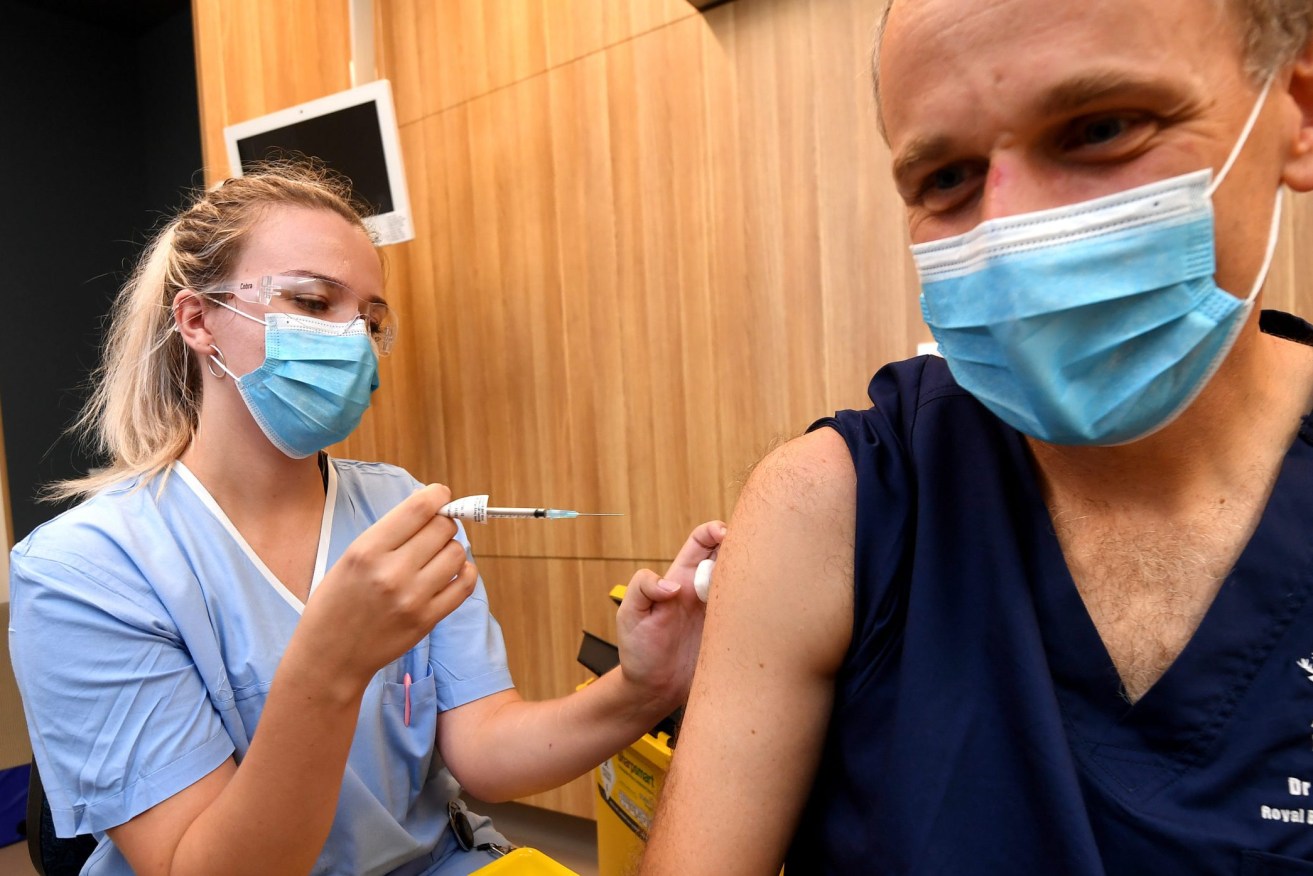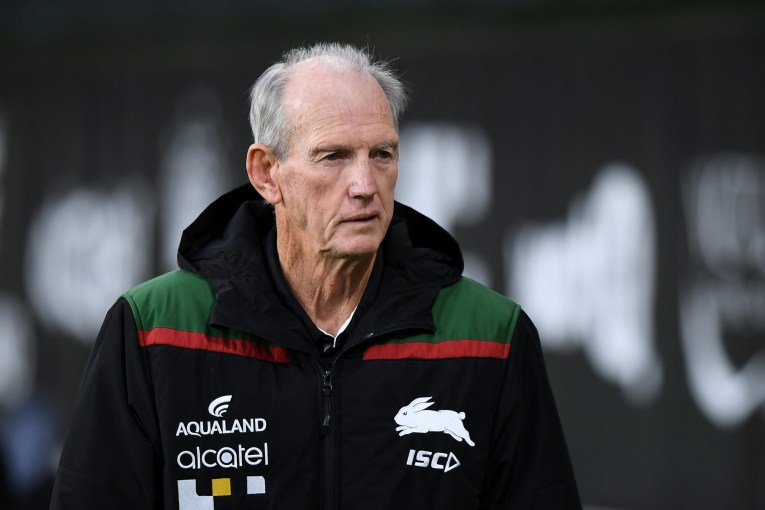Vaccine rollout woes: High wastage rate for a jab many of us say we don’t want anyway
Ongoing problems with the rollout of COVID-19 vaccines, amid a low rate of infection, have almost a third of Australians questioning whether they should get the jab.

For the first time in two decades, Aussies are getting less healthy. (Pic, AAP).
Australia has abandoned all targets for the vaccination rollout after supply problems, and the need to use more Pfizer vaccines, complicated the logistical challenge of getting doses into the arms of people across the country.
Special freezers are being established at Hospital and Health Service hubs across Queensland to support the rollout of Pfizer vaccines, which are more temperature-sensitive than the AstraZeneca alternative.
Given the sheer size of the state and the remoteness of some communities, that has required significant planning and resources. A freezer arrived on Thursday Island last week, allowing the rollout to resume after it was paused due to blood clot concerns for younger residents if the AstraZeneca vaccine was used.
However, 6,720 Pfizer vaccines recently went to waste after two separate breaches in the cold chain on route to Queensland Health facilities in Townsville and Cairns. The first was due to a broken refrigerated container, and the second was due to packaging damage leading to condensation on the vaccines.
Concerns over vaccine wastage come amid another worrying development in the national rollout, with an opinion poll suggesting that almost one-third of adult Australians say they are unlikely to be vaccinated against coronavirus.
The poll, published by Nine Entertainment, has found doubts about side effects top the list of reasons for vaccine hesitancy.
Many people also believe there is no rush to take the jab while the international borders remain closed.
The survey found 15 per cent of people said they were not at all likely to receive the vaccine, while another 14 per cent said they were not very likely.
Any reduced demand may buy authorities more time to ramp up the supply of COVID-19 vaccines and deal with any distribution issues.
A federal Department of Health spokeswoman said the rollout assumed a 10 per cent wastage rate, based on experience with the pre-pandemic National Immunisation Strategy and advice from the World Health Organisation.
“The Australian Government is undertaking detailed implementation planning with jurisdictions and providers to ensure equitable access to doses and minimise wastage,” the spokeswoman said.
“The Vaccine Operations Centre has strong procedures in place to closely monitor wastage and receives regular reports on wastage from vaccination providers. This is achieved through a careful process to support appropriate site readiness, forecasting, distribution, and reporting of vaccine stock on hand on a rolling basis.”
The actual rate of wastage in Australia has not been released. The department requires any incidents to be reported, including whether Pfizer vaccines that have gone to waste came directly from Pfizer or logistics company DHL.
A DHL spokesman could not be contacted, and delivery company Toll has previously declined to comment.
While Pfizer includes GPS-enabled thermal sensors to track the location and temperature of vaccine shipments, an industry expert said that did not prevent other breaches in the cold chain.
Australian Food Cold Chain Council chairman Mark Mitchell said the measures needed to maintain the cold chain were not well understood, let alone complied with, and warehousing and shipping companies could already be in breach.
“We are not sure of the actual vaccine losses are in Australia, but looking at the global figures, 25 per cent is generally assumed lost due to temperature abuse, so we have to conclude the number would be similar here especially from what we hear anecdotally,” Mitchell said.
A Queensland Health spokeswoman said there had been “minimal vaccine wastage in our state-run clinics”.
If vaccines make it to the clinics, they are carefully stored and managed, to the point where any spare doses will be given to anyone to ensure the opportunity is not lost.
“Queensland is Australia’s most decentralised and diverse state so vaccinating our population is no small feat,” the Queensland Health spokeswoman said.
“All potential wastage incidents are reported to the Commonwealth Government and in the event of unused vaccine that would otherwise be discarded, we would be able to locate vaccine recipients at any of our Hospital and Health Services across the state in order to minimise wastage.”
Confronted with the results of the Nine Entertainment poll, Prime Minister Scott Morrison was keen to focus on the more than 70 per cent of people who were happy to have the vaccine.
“I would encourage them to go and make that booking,” he told Newcastle radio 2HD on Wednesday.
“If you are over 50, go and do that with your GP now. The state government is setting up other clinics to do the same thing. So I would just encourage people to get on and do it.”
The prime minister was also keen to point out only a small proportion of those surveyed were “hard against” receiving the jab, saying that was fairly normal with most vaccines.
Premier Annastacia Palaszczuk said she expected a surge in demand for vaccines at Queensland hubs from September when more supplies will be available.
Liz Chatwin, the president of AstraZeneca in Australia and New Zealand, has sought to ease concerns among people aged over 50 who are feeling some hesitancy about getting the vaccine.
“The AstraZeneca vaccine is highly effective – it has actually been used in tens of millions of people around the world, and in the vast majority of people it is extremely well tolerated,” she told the ABC.
Chatwin said blood clots linked to the vaccine were extremely rare, with just 18 cases reported in Australia out of 1.8 million vaccinations.
“Those rates are very similar to what have been seen overseas but the difference here in Australia, the experts are saying, is that the cases appear to be more mild,” she said.
-with AAP












